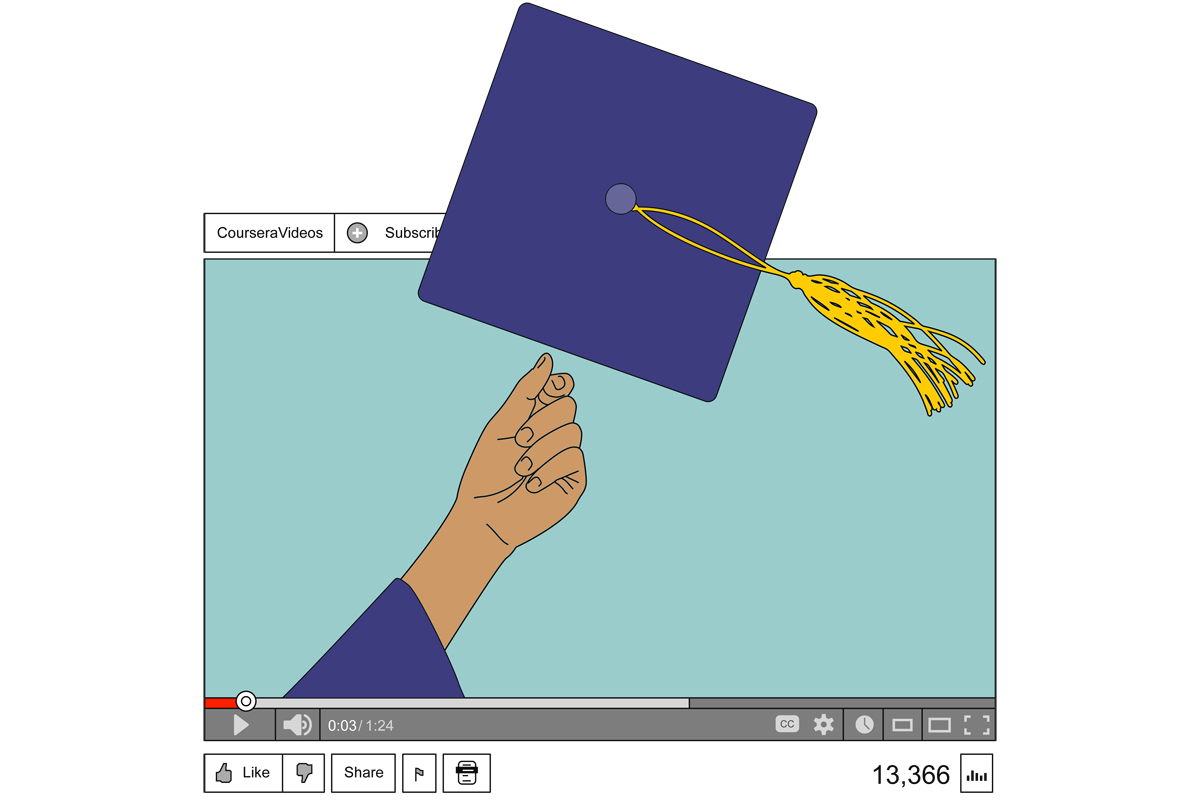
Think health-care costs are out of control? Try paying for a university degree. In the past 25 years, while health-care costs have risen 250 percent, higher-education costs have skyrocketed 450 percent, according to the National Center for Public Policy and Higher Education. But Daphne Koller and Andrew Ng believe the Internet should allow millions of people to receive first-class educations at little or no cost. The two professors, who both teach computer science at Stanford, have launched Coursera, which will make courses from top-tier universities available online, at no charge, to anyone.
So far they've signed up volunteer professors from Stanford, Princeton, University of Michigan, and University of Pennsylvania. Coursera will offer 35 courses in subjects ranging from math and computer science to world history and contemporary American poetry. These aren't just videotaped lectures; they're full courses, with homework assignments, examinations, and grades.
"Today universities can offer a great education to a tiny sliver of the population. What we're hoping to do is provide the technology to enable a university like Princeton to offer an education not just to hundreds or thousands of students, but to millions," Koller says.
Coursera grew out of an experiment Ng and Koller carried out last fall, when each made a class available at no cost online. Ng's class in machine learning drew more than 100,000 enrolled students, 13,000 of whom completed the course. The huge interest convinced Ng and Koller they were onto something. Others agreed, including two of the best venture-capital firms in the valley, Kleiner Perkins Caufield & Byers, and New Enterprise Associates, which have invested $16 million combined in Coursera.
Coursera doesn't pay its professors, and it has yet to dream up a way to generate revenue, though as Ng says, "If you're changing the lives of millions of people, there will be a way to make money from that at some point." One possibility involves charging companies for helping them find qualified job applicants.
Internet learning is hot in Silicon Valley. Coursera joins a growing list of companies formed to offer classes online, including Udacity (cofounded by another Stanford professor), Khan Academy, the Minerva Project, and edX, a joint venture between Harvard and MIT. Could these guys one day become a threat to the higher-education market? How can top universities keep charging $250,000 for a four-year degree if the courses they offer are available online at no cost?
At the very least, universities will need to reconsider their business model and figure out what it is they're selling. If it's not coursework, what is it? In-person access to famous professors? Seminars with other smart students? Frat parties? One thing universities can't do is pretend that things will stay the same. "Technology is changing education. This is coming whether we like it or not," Ng says.
College presidents, you've been put on notice.
Uncommon Knowledge
Newsweek is committed to challenging conventional wisdom and finding connections in the search for common ground.
Newsweek is committed to challenging conventional wisdom and finding connections in the search for common ground.
About the writer
To read how Newsweek uses AI as a newsroom tool, Click here.





